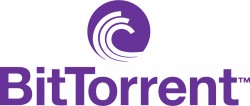Weekly News Roundup (30 June 2013)
So I was watching The Colbert Report on Hulu Plus last night, and out of nowhere, the screen goes black, the PS3 beeps a few times, and it now refuses to start up again. The dreaded Yellow Light of Death. I guess it was only a matter of time for my launch model PS3, and it’s not worth spending money to repair it, not with the price of the PS3 Slim and not when the PS4 is just around the corner. I might try one of the DIY fixes for the YLOD problem, nothing to lose really now. This brings the number of devices connected to my TV (or the TV itself) capable of Netflix and Hulu Plus playback down to “only” three.
On with the news …
 BitTorrent Inc fired another salvo in their war of semantics over the term ‘BitTorrent’ this week by declaring war on news stories that said Game of Thrones broke a ‘BitTorrent piracy record’.
BitTorrent Inc fired another salvo in their war of semantics over the term ‘BitTorrent’ this week by declaring war on news stories that said Game of Thrones broke a ‘BitTorrent piracy record’.
BitTorrent Inc says that there’s no such thing as a ‘BitTorrent piracy record’, since piracy does not exist on the BitTorrent ecosystem. Of course, what Matt Mason, VP of marketing at BitTorrent Inc was referring to was the part of the BitTorrent ecosystem that BitTorrent Inc has direct control over. All fine and good, except nobody (probably not even the MPAA) has actually accused BitTorrent Inc of doing anything untoward.

BitTorrent Inc again trying to distance themselves from piracy, even though most people aren’t making the connection, nor even know that BitTorrent, the company, actually exists
When people do use phrases like ‘BitTorrent piracy record’, they’re of course referring to the BitTorrent network that is publicly accessible over the open source BitTorrent protocol.
This kind of arguments over semantics isn’t new or limited to BitTorrent either. Usenet is the next most prominent example, and even FTP, at one point in time, become far too closely linked to piracy for its own good. It’s just that in the case of BitTorrent, it’s unfortunate that an actual company exists with the same name as the protocol.
As I posted before, maybe a company name change is the best way forward. After all, most people who transfer files over BitTorrent aren’t even aware of BitTorrent Inc’s existence, nor do most people realise that this is the same company behind the super popular uTorrent client. There’s nothing to be lost really from changing BitTorrent Inc to something else.
I would also suggest BitTorrent Inc go and look up the Streisand Effect the next time they want to distance themselves from the BitTorrent/piracy controversy.
But maybe piracy isn’t the dirty word it used to be. The anti-piracy chief at Warner Bros. says that pirates may in fact be consumers that have not been served well by movie studios. In a frank Q&A ahead of the Anti-Piracy and Content Protection Summit, anti-piracy boss David Kaplan admits that the piracy problem may in fact be a supply and demand one, rather than the traditional thinking that all pirates are dirty rotten no-good thieves.
Piracy may very well be the result of poorly met demand. And Kaplan says that a studio like WB should “take advantage of that demand by offering fans what they are looking for when they are looking for it.”
While I think it’s true that some will always pirate, many others can be swayed by a good offer to “go legit”, if the price, and the service, is right. It doesn’t have to be free, as in beer or as in DRM, but it has to be seen as good value, and that’s all it takes.
Kaplan also touched on the issue of ‘fan use’, and says WB plans to take a much looser view of such infractions, to allows fans to use copyright content in a creative way. It’s certainly cheaper and easier than hiring a PR firm to create fake fan videos in the hope they’d go viral.
But let’s wait and see if WB’s actions match their words, as it’s only been a couple of weeks since it was revealed that WB was behind one of the more recent attempts to go after downloaders.

Nintendo videos are making a comeback on the ZackScottGames YouTube channel, as Nintendo relaxes copyright grip on Let’s Play videos
Speaking of taking it easy on ‘fan use’, you may remember that Nintendo found itself in a PR nightmare recently by clamping down on exactly this kind of fan use, by claiming copyright on YouTube Let’s Play videos. While they didn’t remove any videos, they did take away the small amount of revenue the creators of these videos needed to keep their hobby alive. Nobody at that time, including me, could understand why Nintendo had to step in. Were they that desperate for revenue, considering the misfiring nature of the Wii U?
But just this week, Nintendo seems to have copied Microsoft and has done its own copyright 180. It appears the company is no longer claiming revenue on at least one Let’s Play video series, owned by the very same Zack Scott that issued a boycott of Nintendo games because of the copyright claim. Zack is getting revenue again for this Nintendo videos, and if it continues, it means he can afford to publish more Nintendo videos in the future.
If Nintendo are still unsure what they need to do here, here’s some sage advice from Warner Bros’ anti-piracy head David Kaplan: “We give a wide berth to ‘fan use’ and permit fans to use and interact with our content in ways that might technically still constitute copyright infringement, but do not directly substitute for the full length feature, episode or game.”
And on that note, we come to the end of this rather short WNR. See you next week.
